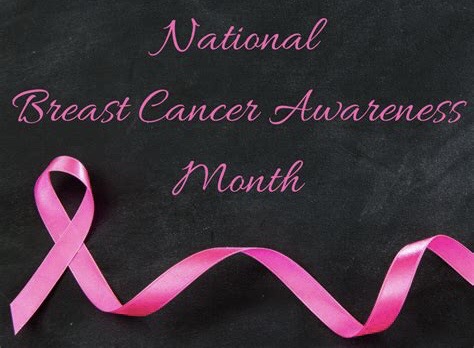Pinktober marks the annual observance of breast cancer awareness, aiming to combat one of the foremost causes of cancer-related fatalities in women worldwide. To all the mothers, grandmothers, and women in general, it is crucial to remain vigilant and perform regular breast self-examinations.
Breast Cancer Awareness Month is a globally recognized health initiative held every October, coordinated by prominent breast cancer organizations and healthcare providers. Its primary objectives include increasing awareness about the disease, raising funds for research into its origins, prevention, diagnosis, treatment, and ultimate cure. The Pinktober campaign strives to disseminate information about breast self-examination and promote early screening as the most potent weapon against breast cancer. In 1993, the pink ribbon emerged as the symbol for breast cancer and has since gained international recognition. The term “Pinktober” originated when October was designated as the month for breast cancer awareness.
Throughout the year, a multitude of events and activities are organized worldwide in support of Pinktober, including the illumination of iconic buildings in pink to honor Breast Cancer Awareness Month.

In 2019, breast cancer was diagnosed in approximately 2 million cases worldwide, representing more than 10% of all cancer cases and around 23% of cancer cases in women. Early detection and awareness are crucial in the fight against this disease, and many doctors worldwide now recommend discussing breast cancer and the significance of self-detection with your daughters at an early age.
While there is no single solution, raising awareness of risk factors and taking proactive measures can significantly impact prevention, early detection, treatment, recovery, and preventing relapse. Understanding both controllable and non-controllable risks can lead to more informed decisions regarding screening and early detection.
- Controllable Risks
- Non-controllable Risks
- Detection
- Screening
- Diagnosis Challenges

Controllable Risks
Research indicates that maintaining a healthy lifestyle can reduce the risk of developing breast cancer. This includes maintaining an ideal weight, adopting a balanced diet, avoiding excessive alcohol consumption, and staying physically active. Additionally, recent studies have raised concerns about the long-term use of hormone replacement therapy (HRT) for menopausal symptoms, suggesting potential health risks. It is advisable to consult with a healthcare professional to weigh the risks and benefits of HRT.
Non-Controllable Risks
Women inherently face a higher risk of breast cancer due to their gender. Furthermore, age is a significant factor, with breast cancer historically affecting women over the age of 50. The prevalence of the disease in younger women varies by country, and screening guidelines may differ. Certain types of breast cancer are hereditary, necessitating increased screening for individuals with faulty genes like BRCA1 and BRCA2, which can lead to abnormal cell growth and cancer.
Early Detection
Breast cancer encompasses various types and grades, and the location of the disease can greatly influence diagnosis. Regular check-ups are essential, especially since early-stage breast cancer may present no noticeable symptoms.
Screening
Early detection is the key to simplified treatment and survival. Regular screenings are essential, even for asymptomatic individuals. Mammograms and breast ultrasounds are considered the gold standard for breast cancer screening, capable of detecting masses before they become palpable or visible. The quality of the images and the expertise of the radiologist play a significant role in detecting hard-to-spot cancers.
Bangkok Hospital Chiang Mai’s Breast Care Clinic utilizes digital mammography for higher resolution and immediate image availability, facilitating mammogram-guided biopsies.
Diagnosis Challenges
While interval mammogram programs are valuable, they are not foolproof. Some aggressive breast cancers may develop between screenings or remain undetected. Embracing technology and methods beyond standard interval screening is crucial for the future of breast cancer care.
The growing field of personalized medicine may lead to more individualized screening strategies, adjusting the frequency of screenings. Genetic screening, as practiced at Bumrungrad International Hospital, identifies individuals with a predisposition to cancer, enabling tailored recommendations based on individual risk profiles.





